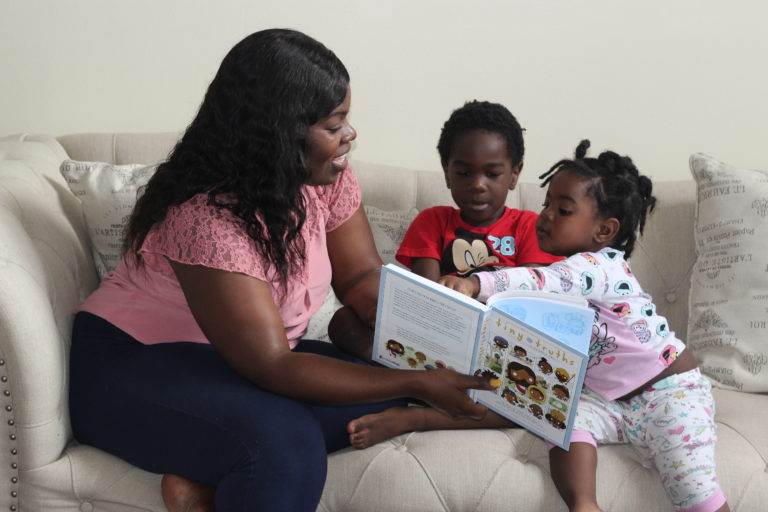6 Godly Ways To Build Healthy Self-Esteem In Kids
Self-esteem is an attribute most loving parents will strive to instill in their children. But here is the twist: self-esteem is a general opinion about oneself, including appearance, talents, values, worth, etc.
Do you want your children to depend on the opinions of others or on their physical appearance or skill to feel important? Do they have to act like they are better than others simply because they are more aware of their strengths? Well, I guess not. And that is why building healthy self-esteem in children is crucial.


Building healthy self-esteem in kids the godly way is like finding a balance between knowing your self-worth and being humble. The Bible is all about moderation, and you do not want to train your children to see themselves as better than anyone else or as if they do not matter.
But as beings who acknowledge that their abilities are all gifts from God, that His love surpasses everyone’s judgment, and that the opinions of others do not define them.
The Bible may not have mentioned self-esteem, but it did point out how important we are in Christ; this should be how our children see themselves. Let us take a look at this bible verse, Psalm 139:13-14.
“For you created my inmost being; you knit me together in my mother’s womb. I praise thee because I am wonderfully and fearfully made.”
Here the Bible tells us how God made us wonderfully. So if there is one thing we must teach our children, God created them perfectly, and God’s love for them does not change despite their flaws. Let us get familiar with healthy self-esteem and ways we can build healthy self-esteem in our children the godly way.
What is healthy self-esteem in kids?
Healthy self-esteem is confidence in how you see yourself and think of your abilities, opinions, and limitations.
Self-esteem isn’t only about your intellectual abilities but also involves how you view yourself physically, emotionally, and sometimes even spiritually.
Healthy self-esteem means your opinion about yourself is balanced so that it isn’t overrated or underrated. You understand your flaws, and you don’t get defined by them.
Self-esteem in kids starts from childhood and how they are trained; childhood experiences and society can influence how children see themselves.
Several other factors influence self-esteem in kids, and they include:
- Media
- Direct interaction with society
- Parental expectations
- Personal thoughts
- Limitations, e.g., illness or disability
- School experiences
- Friends
Causes of low self-esteem in kids
Criticism
Negative feedback and constant criticism do not give a child the room to think highly of themselves or believe in their abilities.
Comparison
Especially on the part of parents, constantly comparing your kid’s output with that of others with or without acknowledgment of their efforts will negatively impact their self-esteem.
Negative feedback from close association
Parents, teachers, and friends shape kids’ attitudes and character. And the reactions of parents to children are essential in shaping their mindset.
Personal thoughts
If you view yourself in a demanding or demeaning way, it tends to affect your self-esteem. You will start to place unnecessary expectations on yourself, ultimately making you devalue yourself.
Why healthy self-esteem is important
Security
Healthy self-esteem makes you feel secure in relationships, interactions, and life.
Self-worthiness
You will have a sense of self-worth and understand how you should be treated as a person, and you won’t settle for less.
Good relationships with people
Healthy self-esteem helps you to identify unhealthy relationships and enables you to maintain good ones.
Confidence
Confidence and self-esteem work together. Healthy self-esteem equals high confidence and vice versa.
Realistic
A person with good self-esteem is realistic in their goals and expectations because they understand their strengths and weaknesses. They do not put themselves under unnecessary pressure and do not compete with anyone.
Increased chances of success
Healthy self-esteem makes you open to learning new things and gaining new experiences because you understand how to channel your strengths and limitations. This increases your chances of being a success in life.
Signs that your child has low self-esteem
Some specific signs will tell you if your child is going through a self-esteem crisis. These are:
- Constantly talking badly about themselves
- Comparing themselves with someone or a group of people
- Unsecured about the way they look or dress
- Always shifting blames
- Easily influenced or persuaded to do something against their will.
- Unable to say NO
- Always avoiding challenging situations
- Unable to tolerate frustrations and having no control over their emotions
- Lack of responsibility.
How to build healthy-self esteem in kids the godly way
Here is a godly approach to helping your child build healthy self-esteem:
Teach them what the Bible says about them
You need to help your child understand the purpose of their existence. Why did God create them? Help them find the answer to this question and, in the process, find themselves.
They need to understand that God didn’t create them by mistake but that there is an intentional force behind them being in the world today.
These teachings will help them dispel the thought that they are useless and believe in their hearts and minds that they are made for something great!
They will begin to look forward to what God wants them to do, which helps them to start exploring their strengths and working on their weaknesses.
You, as a parent, also have to be actively involved in this process. Please note what your child enjoys doing, and ask questions that help them reflect and identify their strengths. While you identify their strengths, also help them identify their weaknesses because these things are what make them.
Encourage them when they fail
You have to accept your kids for who they are and their failures. This will help you to be able to encourage them when they fail sincerely. In discovering themselves, they will probably get it wrong a thousand times. Still, with you encouraging them, these times will feel more like practice, and it will not damage their self-esteem. However, they begin to let their failures define them when you do not offer encouragement, leading them to set unnecessarily high standards for themselves.
Encourage them to use their God-given talent and skills to honor God
This will help to maintain a realistic and humble point of view on their abilities. If you are worried about how to help your child maintain humility and not overestimate themselves, you have to teach them that their skills and talents are from God and should be used to serve God.
It creates a balance between healthy self-esteem and humility.
Help them to understand that looking down on themselves is looking down on God because they are God’s work of art.
Teach them about God’s love
Help them to see themselves the way God views them. Tell them positive statements that reflect how much value they hold to God.
God made you so intentionally.
You are the apple of God’s eye.
You are fearfully and wonderfully made by God.
This teaching helps them become more aware of God and His love for them.
Create opportunities for them to serve
Creating opportunities for your kid to serve can help build healthy self-esteem. Service to the house of God and humanity will help them feel involved and valuable, and it is a quick antidote for low self-esteem.
As a parent, you should be able to identify your child’s strengths and weaknesses so that you can give them opportunities to challenge their weaknesses and utilize their strengths.
Praise their efforts and remain supportive
Whatever effort your child puts in, even when the result doesn’t come out as expected, encourage them and praise their efforts.
Yes, you didn’t get the price, but you put in your best, and that’s all that matters.
No worries, baby, we’ll try again, and I’ll be here with you.
Words like these will help them feel more loved and secure without feeling like they need to earn acceptance.
Let’s Recap
When building healthy self-esteem in your children, make sure you are a model yourself. Children will learn from things they see their parents exhibit.
Supporting your children and showing them love is what will enable them to see the perfect example of what love is. Correct them in love, praise them wisely, and avoid harsh criticism.
What is your opinion about building healthy self-esteem and doing that in a godly way? Please share your thoughts in the comment section.
READ ALSO: 8 Effects of negative Peer Pressure on kids and how to handle it
If you’ve made it this far, I want to thank you for sticking around and reading this post. Leave a comment below to let me know you stopped by. Please be sure to like, pin, and share this post as well! Your support means everything! If you’ve enjoyed this post and want to see more like it, or receive a short weekly devotional, be sure to subscribe to my newsletter below!
[mailerlite_form form_id=1]





